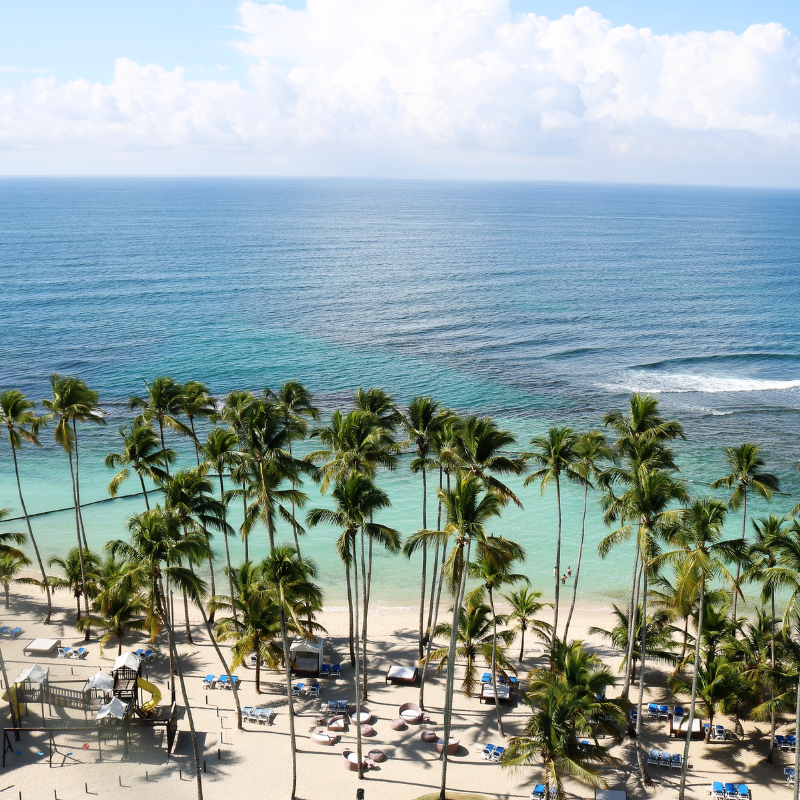Next working day delivery with Royal Mail Tracked 24
How Deep are our Oceans and Seas? The Caribbean Sea

How Deep are our Oceans and Seas?
Without our oceans and seas, there would be no fish. In our regular blog feature we explore the depth, area and volume of Earth's oceans and seas. Here is a run down of the depth and area of the Caribbean Sea.
Caribbean Sea
The Caribbean Sea is one of the largest seas on Earth and has an area of about 2,754,000 km2 (1,063,000 sq mi).
The Caribbean Sea has an average depth of around 2,200 meters (7,220 feet). The deepest point in the sea is the Cayman Trough, with a depth of approximately 7,686 meters (25,217 feet).
The Caribbean Sea is is a sea of the Atlantic Ocean in the tropics of the Western Hemisphere. It is one of our largest seas, with a vast array of islands. The Bahamas, a Caribbean nation, has approximately 700 islands. The entire area of the Caribbean Sea, the numerous islands of the West Indies, and adjacent coasts, are collectively known as the Caribbean.
The Caribbean Sea has the world's second largest barrier reef. The Mesoamerican Barrier Reef runs 1,000 km (620 miles) along the coasts of Belize, Guatemala, Honduras and Mexico.
The name "Caribbean" derives from the Caribs, one of the region's dominant Native American groups at the time of European contact during the late 15th century. After Christopher Columbus landed in the Bahamas in 1492, the Spanish term Antillas applied to the lands. The name "Sea of the Antilles" became a common alternative name for the Caribbean Sea in various European languages.

Most nowadays will recognise the region from the famous 'Pirates of the Caribbean' films, but until 1492 The Caribbean Sea had been unknown to the populations of Europe, when Christopher Columbus sailed into Caribbean waters on a quest to find a sea route to Asia.
Following the discovery of the islands by Columbus, the area was quickly colonised by several Western cultures (firstly the Spanish, later English, the Dutch, French and the Danes). Following the colonisation of the Caribbean islands, the Caribbean Sea became a busy area for European-based marine trading and transports, and this commerce eventually attracted pirates such as the infamous Blackbeard.
The Caribbean Sea provides approximately 170 million tons of oil every year, making it one of the largest oil producing regions in the world.
The Caribbean Islands are home to around 167 species of freshwater fish, about 65 of which are endemic to a single or couple of islands, and lots of of those to only a single lake.

The Caribbean Sea embraces a wide range marine species. You'll find bounties of conch and different molluscs, sea turtles, lobsters, eels, hammerhead and leopard sharks, jelly fish and sting rays, and many species of whales.
The water of the Caribbean is warm, clear and has lower Salinity levels than the neighbouring Atlantic. The average water temperature is around 27°C (80°F) and varies as little as 3°C (37°F) throughout the year. The Caribbean Sea is the source of the Gulf Stream, with this tropically warmed current reaching right across the Atlantic.
The water temperature on the Caribbean Sea surface averages around 80° F (27° C) and varies by as little as 37° F (3° C) through the year. The water of the Caribbean is warm, oxygen rich, clear and has lower Salinity levels than the neighbouring Atlantic - around 35 parts per thousand.

How Many Fish Live in the Oceans on Earth?
Scientists estimate the total number of fish in the Earth's ocean to be around 3,500,000,000,000, comprising of around 20,000 different species. However, accurately counting the number of fish is near-impossible task. It is very difficult to estimate what percentage inhabit the Caribbean Sea.
The estimated number of fish in our oceans and seas is constantly changing due to environmental factors, plus as fishing, predation, and reproduction.
Photo credit(s): Getty Images (title image and above).









